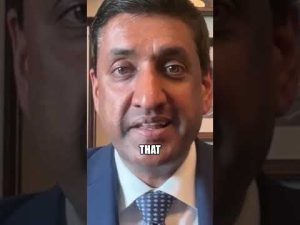In a world where the news cycle can twist and turn like a pretzel, a recent story out of the Middle East has captured attention, especially with President-elect Donald Trump weighing in. With discussions surrounding a potential hostage deal in the ongoing conflict involving Hamas, there seems to be a glimmer of hope poking through the clouds of despair. Experts and analysts alike are watching closely to see if this deal will finally get over the finish line, and what it might mean for the region’s future.
For a long while, negotiations have been as wobbly as a toddler walking for the first time. A deal has been on the table for months, but Hamas has yet to give it a thumbs-up, despite repeated approvals from Israel and support from key players like Qatar and Egypt. One could say the wheels of diplomacy have been turning slowly, but the recent statements from Trump appear to have recalibrated the urgency. It seems everyone is on their best behavior, trying not to annoy the future president—an interesting strategy for securing peace!
Experts point out that Trump’s influence could be the secret sauce needed to thrust this deal into action. It’s speculated that the incoming president’s strong stance might provide the extra nudge needed for Hamas to come to the table, or at the very least, stop their stubborn foot-stomping. However, the path forward is strewn with obstacles, including the grim reality that any resolution to hostages’ fates won’t magically solve the deeper issues plaguing the region. With Hamas still in control of Gaza, eternal conflict may remain the order of the day.
As the diplomatic chess game plays out, questions linger about who should ultimately take the reins in Gaza. The current options leave much to be desired. Hamas, known for its militant approach and questionable governance, certainly doesn’t win any prizes, and the Palestinian Authority isn’t exactly a beacon of effectiveness either. Many experts suggest that Israeli oversight may be the most pragmatic interim solution—essentially putting a parental figure in charge until local leadership can stand on their own two feet. This might sound a bit paternalistic, but sometimes tough love is what’s needed when dealing with stubborn toddlers or geopolitical squabbles.
The dream, as painted by some analysts, is to see a new Palestinian leadership emerge—one that prioritizes education, infrastructure, and peaceful coexistence over destruction and chaos. This long road to recovery is not without its bumps, and while it may take longer than anyone would like, the prospect of a peaceful future could provide the hope needed by the citizens of Gaza and beyond. Until then, the world can only wait and keep a close eye on developments, holding its breath in anticipation of a potentially game-changing ceasefire agreement.
Overall, the unfolding narrative surrounding this hostage deal serves as a reminder that in geopolitics, patience and persistence are key. It also highlights that while political maneuvering can seem dramatic, in the end, it’s the people affected by these decisions who are truly at the heart of the matter. As the world watches this saga unfold, it is critical to remember that hope springs eternal, and perhaps, just perhaps, brighter days are ahead for those caught in the crossfire.







